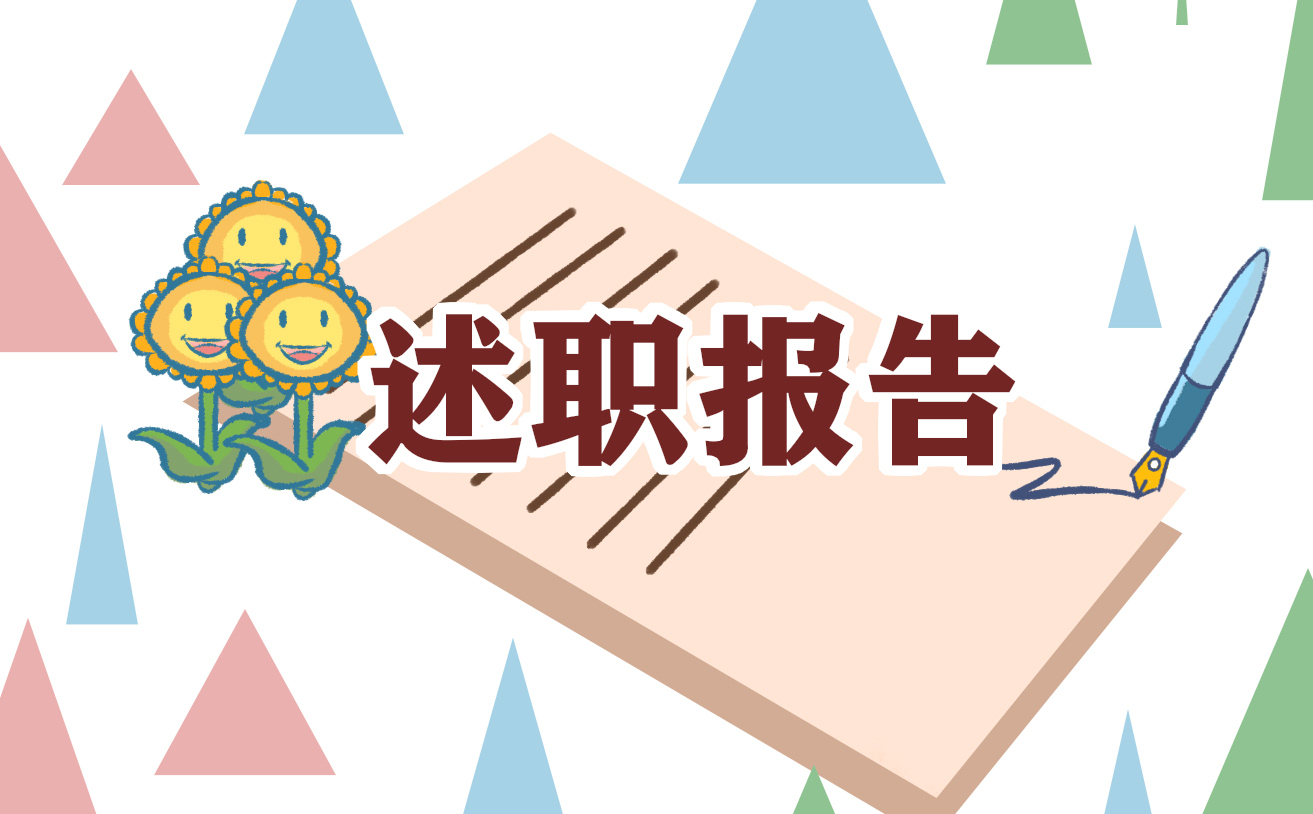下面是小编为大家整理的2022年21世纪报英语演讲比赛【优秀范文】,供大家参考。

篇一:21世纪杯”全国英语演讲比赛演讲稿
目录
第三届“21世纪杯”全国英语演讲比赛冠军——梁励敏................................................ 2
第三届“21世纪杯”全国英语演讲比赛亚军——芮成钢................................................ 5
第四届“21世纪杯”全国英语演讲比赛冠军——蔡力 ................................................... 9
第六届“21世纪杯”全国英语演讲比赛冠军——戚悦 ..................................................11
第七届“21世纪杯”全国英语演讲比赛冠军——孙宁 ................................................. 13
第八届“21世纪杯”全国英语演讲比赛冠军——顾秋蓓.............................................. 17
第九届“21世纪杯”全国英语演讲比赛冠军——洪晔 ................................................. 20
第十届“21世纪杯”全国英语演讲比赛冠军——夏鹏 ................................................. 22
第一章 寻访记忆
引子
美丽的女主播,刘欣
思维的游戏 梁励敏
演讲就要言之有物 芮成钢
Is There a Short Cut?孙宁
Be yourself 顾秋蓓
无一不可入演讲 洪晔
平谈中透着哀伤 夏鹏
第二章 昨日重现(原声)
第一届 央视《环球了望》选段 刘欣
第二届 穿洋越海 梁励敏
第三届 东西方相聚 芮成钢
第四届 我们和黄河一道成长 蔡力
第六届 新北京,三色新奥运 戚悦
第七届 全球化:中国年轻一代所面临的挑战与机遇 孙宁
第八届 难忘的一幕 顾秋蓓
第九届 机会之门就在前方 洪晔
第十届 城墙与桥梁 夏鹏
第三章 明灯导航
“21世纪杯”英语演讲的艺术 史蒂芬·卢卡斯
第三只眼看演讲 吴杏莲
附录
“21世纪杯”全国英语演讲比赛和流程简介
历届比赛一览
第三届“21世纪杯”全国英语演讲比赛冠军——梁励敏
梁励敏
北京外国语大学
梁励敏,生于浙江杭州,毕业于北京外国语大学,获英语语言文学硕士学位,研究生期间专攻方向为美国社会研究。2002年进入中央电视台英语频道采访组工作,所采写的新闻获得2003年全国新闻彩虹奖二等奖。
专家点评:引用文学大师的诗句作为开场白,与结束语首尾呼应,颇有感染力。东西方文化的融合表现得十分鲜明,意味深长,是篇优秀的演讲。
Crossing the Sea
Good afternoon, ladies and gentlemen. The title of my speech today is Crossing the Sea. An English poet by the name of Rudyard Kipling once wrote in his poem We and They:
All the people like us are We
And everyone else is They
We live over the sea
While They live over the way
We eat pork and beef with cowhorn-handled knives
They who gobble their rice off a leaf
Are horrified out of their lives.
When these lines first caught my eyes, I was shocked-how could two peoples remain so isolated and ignorant of each other in the past? Todays society, of course, is an entirely different picture. Those people who used to eat with cowhorn-handled knives might be very skillful in using chopsticks, and those people who used to gobble their rice might be as well have taken to fish and chips.
Indeed, just take China as an example: Our modern life has been influenced by Western style of living in so many ways that its no longer surprising to see teenagers going crazy about rock-and-roll, whole families dining out at McDonalds and even rather elderly people dressed in Apple Jeans.
However, these are only some expressions of the cultural changes taking place in our society today. What is really going on is a subtle but significant restructuring of the nations mentality. Just look around.
How many college graduates are ready to compete aggressively for every job opportunity, whereas not long ago they were asked just to sit idle and wait for whatever was to be assigned to them by the government?
How many young people are now eager to seek for an independent life whereas only two decades ago they would rely totally on their parents to arrange for their future? Ask anyone who participates in todays speech contest. Who has not come with a will to fight and who has not come determined to achieve self-fulfillment in winning the game? And Im quite certain that if Confucius had lived to see todays China, he would have been horrified to see young lovers kissing each other in public places in an ueserved expression of their passion.
It is therefore evident that we as descendants of an ancient Eastern civilization are already living under strong inf1uence of the Western culture. But it is not only in China that we find the incorporation of the two cultures.
Take the United States as an example: During the 1980s,in face of the overwhelming competition from Japan, many American companies such as the Ford began to adopt a teamwork management from their rivals, the essence of which, lay at the very core of Eastern culture.
Take the Chinese acupuncture as another example: This traditional treatment of diseases is finally finding its way to the West and hence the underlying notion that illness is resulted from the imbalance between Yin and Yang within the body -- an idea which would strike any Westerner as incredible in the past!
Ladies and Gentlemen, we live in a great epoch when the global integration of economy and the information revolution have brought cultures of the world closer than ever before. We live in a particular era when countries, East and West, find themselves in need of readjusting their traditional values. We live, at the same time, at a critical juncture of our evolution because such problems as ethnic conflicts and regional uest are increasingly posing a threat to the peace and happiness of the whole human race. To cope with such an era and to embrace an even brighter
future, we need to learn to live more harmoniously in a world community which is becoming smaller and smaller.
My dear fellow students, our command of the English language renders it possible for us to gain an insight into Western culture while retaining our own cultural identity.
Therefore, it is our sacred responsibility to promote the cultural exchanges and hence the mutual understanding between China and the rest of the world.
It is my happiest dream that the new generation of Chinese will not only grow up drinking Coca-Cola and watching Hollywood, but also be blessed with the far-reaching benefits of multiple cultures; benefits that our forefathers had never, ever dreamed of.
To end my speech, I would like to quote Rudyard Kipling again:
All the people like us are We
And everyone else is They
But once you cross over the sea
You will end by looking on We
As only a sort of They Thank you.
译文:穿越海洋
女士们、先生们,晚上好。今天,我演讲的题目是:《穿越海洋》。
英国诗人罗得雅德·吉卜林曾写过一首诗,名叫《我们与他们》,其中写道:
像我们的人是我们
其余的人是他们
我们生活在海这边
他们生活在路那边
我们用牛角柄的刀叉吃猪牛肉
吞吃粽叶包饭的他们吓得要死。
第一次读到这首诗,我很震惊——过去两个民族何以如此疏离、彼此陌生?当然今日的社会呈现出完全不同的情景:那些过去吃米饭的人们也开始喜欢吃鱼和薯条。
的确如此,就拿中国来说,西方的生活方式已经广泛地影响了我们的现代生活,以致对于年轻人对摇滚乐着迷,全家去吃麦当劳,老年人穿苹果牌牛仔裤,大家都已习以为常。
然而,这不过是我们当今社会中所发生的文化变迁的表面现象而已,真正发生的却是我们的民族心理开始了微妙而又有重大意义的重建,大家只要看看周围就会清楚。
不久以前,大学生还只是束手空坐,等待政府给他们分配工作;如今,又有多少大学生正在做充分准备,为争取任何工作机会而激烈角逐?
20年前年轻人还完全依靠父母为他们安排未来,今天又有多少年轻人在急切地寻求一种独立的生活?试问今天参加演讲比赛的诸位,谁不是带着志在一搏的心情来到这里?谁不是铁下
篇二:21世纪英语演讲比赛袁晓婷演讲稿!!
The road not taken in life
Hola todos! Ahora vamos a empezar. el camino no selecionado en la vida. Ladies and gentlemen, I am a sophomore majoring in Spanish, but today I’m here standing on the stage of an English Competition. Should I be here? Is this my arena? Two years ago, when I was offered the privileged chance to pick my major, rather than choose the well-trodden path of English I chose the lonely road Spanish. Lonely you may ask? Despite there being 400 million Spanish speakers in the world, a mere fraction of that number studies it in China.
It’s very common that when students don’t know which major to choose in college, they choose English; when they want a better job, they pick up English, and when they want to master a foreign language, more often than not, it is English. Let’s be frank, people learn English for money. There is a perception that English is the path to a better life. But the law of supply and demand tells that if everyone supplies the same service the value of that service declines. So those who have taken a less traveled road, and have not followed the herd, may have the last laugh.
We’ve seen this before. Think of all those students who decided to pursue law at the urgings of their parents, uncles or teachers. Where are they now? Promised a world of opportunity upon completing their education, instead they are now struggling to find a position in their overcrowded field. Some have ended up turning to new paths as translators, or even butchers and fishmongers. Supply and demand strikes again!
How about beyond education? What are the paths that everyone takes? Everyone rushes to buy a house and we are left with rising prices of homes and apartments that may be highly inflated. Everyone needs to purchase a car and we are left with traffic jams that last over a week! Everyone flocks to Xiangshan in the spring to look at the blooming flowers only to see the backs of other people’s heads. Too often people are sheep refusing to separate from the flock. They become nervous and uneasy when they step out of line. However, isn’t this sometimes necessary? Why do we not buy a cheaper home in a smaller town? Why do we not use public transportation instead of worrying about a car? Why do we not go see Sakura blossoms in Wuhan instead of the Fragrant Hills? The pressure to travel with others is strong for it is always easier to go with the flow.
We must learn to love the lonely path, not fear it. Not always is the popular path a safe one. There are always options. The road less traveled can be fun.
Learning Spanish changes you. You become more colorful, more noisy, more gossipy, more outrageous, more daring. It is like having a personality transplant.Now I encourage people around me to take risks, not unlike entering an English Speaking competition as a Spanish Major. Even though I have chosen the less travelled road to learn Spanish, I am not restricted from detouring into English as I have today. I don’t dream about the road I didn’t take that so many of my friends did. We are lucky to have so many paths in front of us, but there is no single correct path for all of us. We must find our own way. Luckily my path is clear, Spanish is calling. Hasta la vista.
篇三:21世纪杯”全国英语演讲比赛历届讲稿
From Walls to Bridges
第十届―21世纪杯‖全国英语演讲比赛冠军——夏鹏 南京大学
夏鹏原系贵州省平坝县黎阳厂子校学生,小学五年级开始进入贵阳百年英语系统学习英语。2003年,夏鹏以600分的高分考入南京大学法学院,后转入英语系。2004年获得CCTV全国英语演讲比赛第二名,同年获得代表国内最高水平的第十届―21世纪杯‖全国英语演讲比赛冠军,同时获得比赛―最具潜力奖‖,并代表中国参加2005年国际英语演讲比赛,荣获获得冠军和―最受观众欢迎奖‖。
:From Walls to Bridges
Im studying in a city famous for its walls. All visitors to my city are amazed by the imposing sight of the city walls, silhouetted by the setting sun with gold and shining lines. With old, cracked bricks patched with lichen, the walls are weather-beaten guards, standing still for centuries in protecting the city.
Our ancestors liked to build walls. They built walls in Beijing, Xian, Nanjing and many other cities, and they built the Great Wall, which snakes through half of our country. They built walls to ward off enemies and evil spirits. This tradition has been maintained to this day as we still have many parks and schools walled off from the public. I grew up at the foot of the city walls, and Ive loved them since my childhood. For a long time, walls were one of the most natural things in the world.
My perception, however, changed after a hiking trip to the Eastern Suburbs, a scenic
area of my city. My classmates and I were walking with some international students. As we walked out of the city, we found ourselves flanked by taller and taller trees, which formed a huge canopy above our heads. Suddenly an international student asked me, Where is the entrance to the Eastern Suburbs?
Were already in the Eastern Suburbs, I replied.
He seemed taken aback, I thought you Chinese have walls for everything. His remark set off a heated debate. At one point, he likened our walled cities to jails, while I insisted that the Eastern Suburbs were one of the many places in China that had no walls.
That debate had no winners, but I did learn a lot from this international student. For instance, he told me that universities like Oxford and Cambridge were not surrounded by walls; the campuses were just part of the cities. I have to admit that we do have many walls in China, and as we are developing our country, we must carefully examine them, whether they are physical or intangible. We will keep some walls but tear down those that impede Chinas development.
Let me give you an example.
A year ago, when I was working on a term paper, I needed a book on business law and found a copy in the law school library. However, the librarian turned down my request with a cold shoulder, saying, You cant borrow this book, you are not a student here. In the end, I had to spend 200 yuan buying a copy; meanwhile, the copy in law school was gathering dust on the shelf.
At the beginning of this semester, I heard that my university has started not only to unify its libraries but also link them up with libraries of other universities, so my experience will not be repeated. Barriers will be replaced by bridges. Through an inter-library loan system, we will have access to books from any library. With globalization, with China integrated into the world, I believe many of these intangible walls will be knocked down.
I know globalization is a controversial issue, and it is hard to say whether it is good or bad. But one thing is for sure: it draws our attention to Chinas tangible and intangible walls and forces us to examine their roles in the modern world.
And how about the ancient walls in my city and other cities? Should we tear them down? Just the opposite. My city, like Beijing and other cities, is actually making a great effort to preserve the walls. These walls attract not only historians and archeologists but also many schoolchildren trying to study our history and cultural heritage. Walls have turned into bridges to our past and to the rest of the world. If the ancient builders of these walls were still alive today, they would be proud to see such great change in the
role of their walls. They are now bridges that link East and West, South and North, and all countries of the world. Our cultural heritage will survive globalization.
Our Future: the Garden of One Flower or Many Flowers
第十一届―21世纪杯‖全国英语演讲比赛亚军——吴相臣 天津师范大学
演讲稿:Our Future: the Garden of One Flower or Many Flowers
I have a friend who just started his career as a teacher in a primary school. Weeks ago, he asked me to raise a topic for his mid-term composition test. I was curious why he chose me to give a topic, because he is a teacher himself. He said that he wanted something the students can really show their different ideas. Without thinking, I told him to let his students write about what they would do if they were given one million US dollars. My friend left with satisfaction, and I fell into my old memories.
It reminded me of my old days in primary school. We were learning to do narration in the fifth grades Chinese class. Our teacher required us to write a composition with the topic My Most Unforgettable Day with our real experience.
When papers came back, half of the students wrote about the first day they came to school. The rest of the compositions were all about picking money on the streets and giving it to policemen, or helping a blind man cross the street. Of course I was among them. But I remember very clearly, that one student, only one student gave something different. He wrote about the day that he first kissed a girl. I read his composition. After all these years, I cant recite every word, but I dare to say, that even Shakespeare, may not be able to write as equally good when he was 11
years old. The composition was written out of real experience and genuine emotions. Contrary to those fake stories, it sounds real and natural. But the kid was scored zero. Our teacher thought the content was unhealthy, Im sure you know the meaning of this Chinglish word unhealthy.
That was 15 years ago. When you read those compositions, and you feel that half of our population is blind, so all those kids could have a chance to help a blind man cross the street, and every one of us has a hole in our pocket, so all those kids could have a chance to pick up the lost money and give it to policemen.
A few days ago, my friend sent me an e-mail of all the copies of his students compositions. I have to say, I was sadly disillusioned.
Among those papers 40% said that they wanted to donate the money to people in poverty, so their children can go to school. The rest compositions are much more alike. Some wanted to support the panda protection project, some wanted to buy books to enlarge their knowledge. One student even said that he would like to spend his one million dollars on the effort to cure AIDS. I was more astonished to find that a ten- year-old child knew what AIDS really is.
We all have been kids, and we knew what we had once wanted. But, there was no composition about spending the money on video games, nice clothes, chocolates, ice-creams and expensive toys. Like 15 years ago, students wont tell the truth of their hearts.
It has always been our dream to open our childrens hearts. We encourage them to describe their dreams, and acted as if we are ready to accept their thoughts. But the fact is that, children are scared by the zero marked on their papers. They are trained to say what we want to hear.
People compare children to flowers of tomorrow. And parents dream about the scenery that roses, tulips, daffodils flourish in the future. But down the road we are going on, in the future, or the future of future, only one kind of flower can be found. And thats the flower we like most. Our Future: A Battle between Dreams and Reality
第十一届―21世纪·澳门之星杯‖全国英语演讲比赛冠军——曹丰 清华大学
演讲稿:Our Future: A Battle between Dreams and Reality
Good afternoon, ladies and gentlemen:
When I was in the primary school, I have a dream. I want to invent a device which could bring you from one place to another in no time at all. When I was in the secondary school, my dream was to study in my ideal university. And when eventually I got into the university, my dream was to graduate.
How pathetic! When we grow up, we dream less and become more realistic. Why? Why do we have to change our dreams, so, so in order to let it be fulfilled? Why do we have to surrender to the so-called reality? What IS the reality actually?
Ladies and gentlemen, the reality is not real. It is a barrier keeping us from all the possible fantasies. Flying, for example, had been a dream to mankind for thousands of years. A hundred years ago, man could not fly was still regarded as the reality. Now if that was really the reality, what did the Wright brothers do? How did some of you get to Macau? Only when we believe that the reality is not real can we soar with our dreams.
People say that our future is a battle between the reality and our dreams. And if, unfortunately, Mr. Reality wins this war, then I see no future of mankind at all. AIDS will never be curable as this IS the reality; People living in the undeveloped countries will suffer from starvation forever as this IS the reality; 4)Disputes among different countries would never be settled as this
推荐访问:21世纪报英语演讲比赛 英语 演讲比赛 世纪



